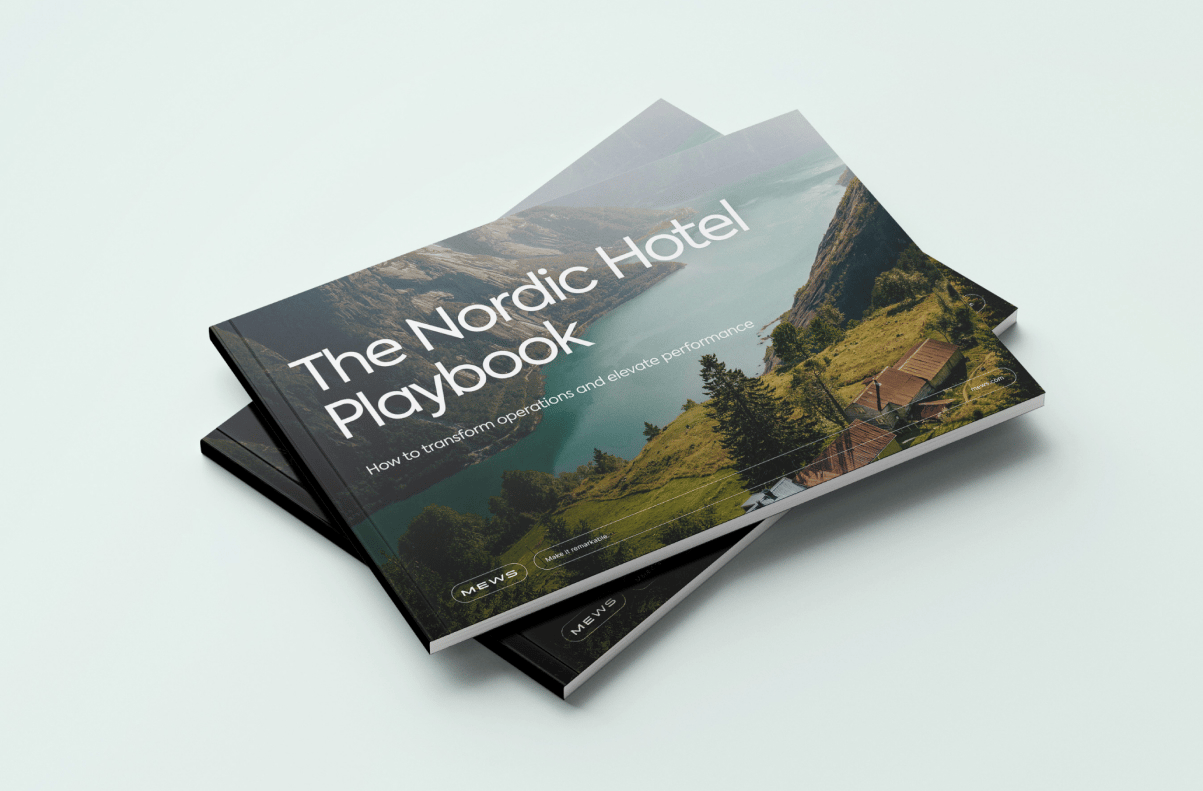Data sovereignty for hotels is increasingly important, particularly with the emergence of technologies like cloud storage and computing systems. Let’s not forget legislation such as the GDPR (General Data Protection Regulation) and the CCPA (California Consumer Privacy Act) aimed at safeguarding consumer data and empowering individuals.
Both individuals and governments are seeking greater control over data collected, transmitted, and stored within their jurisdictions. This emphasizes the importance of data sovereignty in your hotel's IT strategy to ensure compliance with rules and regulations. We will delve deeper into this concept, highlighting its significance, challenges faced by hotels, and strategies for maintaining data sovereignty.
Table of contents
What is data sovereignty?
Data sovereignty in the hospitality industry pertains to data subject to laws and regulations based on the country in which a hotel operates. This includes regulations concerning data privacy, storage, collection, processing, and distribution, as individual governments have the authority to regulate data originating within their borders.
With the growing volume of data collected and generated daily, governments have implemented laws and regulations to safeguard sensitive personal and business data. This may involve protecting data transferred across borders.

Why is data sovereignty important for hotels?
Data sovereignty is crucial in the hotel industry, given the significant amount of sensitive data that is transferred and shared. Hotels face numerous challenges in protecting hotel guest data due to the large volume of data they routinely process. Compliance with regulations is essential, requiring hotels to implement protocols that safeguard sensitive guest information, including personal details, payment data, and booking history.
Data sovereignty ensures that hotels maintain control over the storage and processing of this critical data to avoid legal issues, penalties, and security risks. Careful management of this information builds customer trust and loyalty, so it’s the hotel's ethical and moral responsibility to establish appropriate protocols. Guests are more likely to choose a hotel that prioritizes their privacy and security, leading to repeat business and positive word-of-mouth.
Challenges faced by hotels in ensuring data sovereignty
Hotels are required to store sensitive reservation information (including credit card details, addresses, and personal names) to secure bookings. Understanding the challenges associated with this is crucial to preventing hotel data breaches. The more prepared your hotel is, the better equipped you’ll be to address any issues, minimizing the potential impact on the hotel's reputation.
Operating globally
Operating hotels globally can complicate data sovereignty compliance due to varying laws and regulations across different countries. Hotels must navigate this diverse legislation to ensure compliance in all jurisdictions where they operate.
Third-party providers
The evolution of PMS technology has led to increased use of cloud-based computing. Hotels often rely on third-party vendors for cloud storage and other booking systems, such as Property Management Systems and guest experience software. This reliance on external providers operating in different jurisdictions presents challenges in ensuring data sovereignty. It is crucial for hotels to thoroughly vet these providers for compliance with relevant regulations.
Human error
Human error poses a significant risk for security breaches. It is important for hotels to educate employees about their role in protecting sensitive guest information to minimize risks and ensure compliance.
Data localization
Certain jurisdictions require data to be stored within the country, posing challenges for operational efficiency and cost-effectiveness, especially for hotels with global operations.
Strategies for ensuring data sovereignty in hotels
To better navigate the system and ensure data sovereignty, it's essential to establish a series of processes that will prepare your hotel for success.
Review local laws
Ensure your legal team is familiar with local data protection laws, which can vary based on location and hotel size. This team can help navigate legislation and keep you updated on any changes that may affect your operations.
Evaluate data sovereignty requirements in each area of operation to understand if data localization laws apply. Determine which data should be stored in specific geographic regions to maintain compliance and minimize operational disruptions.
Set up time to control processes
Implement clear protocols for processing, storing, and protecting customer data. Consider outsourcing certain aspects to experts and regularly review and modify these processes. Conduct routine audits and assessments to ensure compliance and identify vulnerabilities or gaps.

Create a training program
Develop an employee training program to mitigate the risks of human error. Regular training sessions will empower your team to safeguard guest information effectively. Hold frequent meetings to update them on new laws, regulations, and protocol changes.
Establish classification rules
Implement procedures to classify guest data based on sensitivity and importance. This approach helps maintain a comprehensive data inventory, enabling better management, collection, and protection of guest information.
Contingency planning
Prepare for data breaches or cyber-attacks by defining roles and responsibilities. Establish communication protocols and regularly test the response plan to ensure readiness for potential data security incidents. Learn how to effectively manage a hotel crisis.
Conclusion
Safeguarding guest information is paramount for hotels, and data sovereignty plays a critical role in achieving this goal. The more control your hotel asserts over the collection, storage, and processing of guest data within its jurisdiction, the better it can comply with regulatory requirements, mitigate security risks, and ensure business continuity.
Prioritizing data sovereignty also fosters trust and loyalty while creating a competitive advantage through strategic data utilization. As legislation and digital complexities continue to evolve, it's essential for your hotel to stay updated with the latest regulations, consistently reviewing and ensuring the safety of sensitive guest information to protect your guests and uphold your reputation.

Author
Eva Lacalle
Eva has over a decade of international experience in marketing, communication, events and digital marketing. When she's not at work, she's probably surfing, dancing, or exploring the world.
Hospitality hot takes straight to your inbox
Sign up to our monthly newsletter for industry insights, product news, partner updates and more.

The Nordic Hotel Playbook
Download now


.webp)